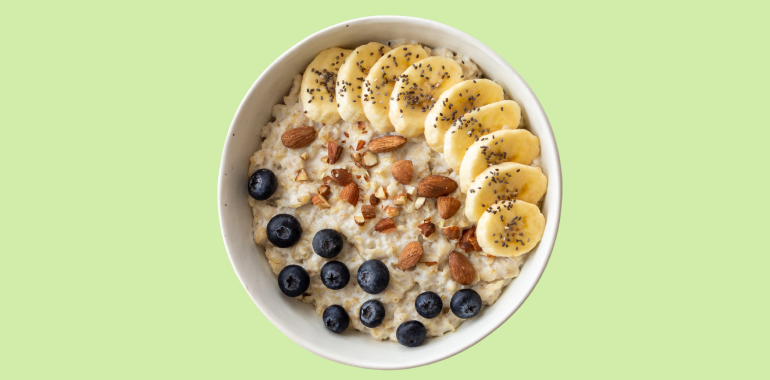Table Of Contents
- Bananas: Nature’s perfect pre-workout food contains potassium that prevents cramping and natural sugars for immediate energy. The fiber content helps provide
The Benefits of a Pre-Workout Routine
A well-structured pre-workout routine is essential for fitness success. Having a proper routine before exercising doesn’t just improve your workout quality but also significantly impacts your overall health. The right preparation helps you maximize performance, prevent injuries, and achieve your fitness goals faster.

Pre-workout routines deliver multiple health benefits that extend beyond just enhancing your exercise session. Here’s why implementing proper preparation techniques matters:
- Stress reduction and mental clarity
Modern life is filled with stressors that can negatively impact your physical and mental wellbeing. Working out releases endorphins that boost your mood naturally, but proper pre-workout preparation amplifies this effect. Taking time to prepare mentally before exercise creates a stress-relief pathway that begins even before your first repetition. Exercise releases endorphins which make you feel better by improving your mood and balancing your hormones.
- Chronic disease prevention
Consistent exercise is one of the most effective ways to combat chronic conditions. By establishing a regular pre-workout routine and committing to just 10 minutes of moderate physical activity daily, you’ll significantly reduce your risk of developing various health issues that plague modern society.
- Improved sleep quality
What you do before exercise directly affects your sleep patterns. After completing a properly prepared workout, your body temperature rises, muscles fatigue appropriately, and your mind clears. These physiological changes promote deeper, more restorative sleep. The endorphins released during exercise also help reduce anxiety, creating a more relaxed state conducive to quality rest.
- Reduced anxiety and depression symptoms
Studies have shown that establishing a consistent exercise routine, including proper pre-workout preparation, can significantly reduce symptoms of anxiety and depression. Research has found that people who followed a structured 12-week exercise program experienced decreased depression symptoms, lower anxiety levels, and reduced stress. Regular physical activity can also improve energy levels, enhance self-esteem, and build confidence.
Proper Hydration: Your First Priority Before Exercise
Hydration should be the first thing to do before workout sessions of any intensity. Your body’s performance depends heavily on proper fluid balance, making water intake crucial both before and during exercise.
Water acts as your body’s natural cooling system, transporting heat away during intense physical activity. Proper hydration also ensures your joints remain lubricated and your cells function optimally. I recommend drinking 16-20 ounces of water 2-3 hours before exercising and another 8 ounces 20-30 minutes before starting your workout.
Dehydration, even mild, can significantly impair your performance. Research indicates that just a 2% decrease in body water can lead to notable performance declines and increased perceived exertion. This makes pre-workout hydration essential for achieving your fitness goals.
Hydration needs vary based on several factors including your body size, workout intensity, environmental conditions, and sweat rate. Pay attention to your urine color—aim for a pale yellow shade indicating proper hydration levels. Dark yellow urine suggests you need more fluids before beginning your exercise routine.
Best Pre-Workout Nutrition for Energy and Performance
What you eat before exercising significantly affects your energy levels, performance, and results. The ideal pre-workout meal balances carbohydrates, proteins, and healthy fats consumed at the right time to fuel your session without causing digestive discomfort.
For optimal energy during workouts, consume a balanced meal 2-3 hours before exercise. This timing allows for proper digestion while ensuring nutrient availability when you need it most. If you’re pressed for time, opt for a smaller snack 30-60 minutes before training.
These nutritional options provide excellent pre-workout fuel to maximize your performance:
- Bananas: Nature’s perfect pre-workout food, bananas contain potassium that helps prevent muscle cramps and natural sugars that provide quick energy for intense sessions.
- Greek Yogurt: Rich in protein for muscle support and contains calcium to improve muscle contractions and support bone density.
- Oatmeal: Delivers complex carbohydrates that provide sustained energy throughout your workout and contains fiber to help maintain stable blood sugar.
- Peanut Butter: Offers healthy fats for extended energy and protein for muscle recovery, making it perfect for vegetarians or those limiting meat consumption.
- Eggs: A complete protein source that supports muscle maintenance and contains choline for improved neural function during exercise.
- Almonds: Provide protein, healthy fats, and fiber while supporting heart health and potentially boosting immune function.
Remember that your pre-workout nutrition should align with your specific fitness goals. If weight loss is your primary objective, consider lighter options and timing your nutrients strategically to support fat burning while maintaining energy levels.
The Ideal Warm-Up Timeline: Preparing Your Body for Exercise
Understanding the right warm-up duration is one of the most important things to do before workout sessions. Your warm-up timeline should match your planned exercise intensity to properly prepare your body and prevent injuries.
For moderate-intensity workouts, dedicate 10-15 minutes to warming up. High-intensity training sessions require longer preparation periods of 20-30 minutes. This graduated approach ensures your cardiovascular system, muscles, and nervous system are all adequately prepared for the demands ahead.
An effective warm-up progression might look like this:
- Begin with 5 minutes of light cardio (walking, slow cycling, or easy rowing) to increase blood flow.
- Add 5 minutes of dynamic stretching targeting major muscle groups you’ll use in your workout.
- Perform movement-specific activation exercises for 5 minutes that mimic your upcoming workout at reduced intensity.
- Gradually increase to working intensity over the final 5 minutes of your warm-up.
This progressive approach ensures your body temperature rises gradually, your muscles become more pliable, and your neural pathways activate appropriately for the movements ahead. Research shows properly warmed muscles perform better and are less susceptible to strains and tears during exercise.
For example, before a running workout, start with a casual walk that transitions into a light jog over 5-10 minutes. Before strength training, perform lighter versions of planned exercises with minimal resistance to prepare specific movement patterns your body will use during the main workout.
5 Essential Things to Do Before Workout for Optimal Results
Maximizing your workout effectiveness requires strategic preparation. These five crucial pre-workout steps will help you achieve better results from every training session:
1. Prioritize proper hydration
Water intake before and during exercise prevents muscle cramps, dehydration, and nausea while supporting optimal performance. Proper hydration helps your body regulate temperature by efficiently transporting heat away from working muscles. It also lubricates cellular structures, allowing them to function properly during physical exertion. Aim for clear to light yellow urine as an indicator of proper hydration status.
2. Eat strategically before training
What to do before working out effectively includes smart nutritional timing. Overeating can lead to discomfort and reduced performance, while training completely fasted might limit your energy availability. If you’re focused on weight loss, keep pre-workout nutrition light but sufficient to fuel your session without excess calories. A small protein-carbohydrate combination 30-60 minutes before exercise often provides the ideal balance.
3. Wear appropriate workout attire
Comfortable, functional clothing and proper footwear significantly impact workout quality. The right gear reduces friction, prevents chafing, and supports proper movement patterns. Sport-specific shoes provide necessary support for your training style, reducing injury risk and enhancing performance. Technical fabrics that wick moisture away from your body help maintain optimal temperature and comfort throughout your session.
4. Complete a thorough dynamic warm-up
According to the American College of Sports Medicine, proper stretching and movement preparation enhances performance and reduces injury risk. Dynamic stretching—moving through ranges of motion rather than holding static positions—increases blood flow to muscles and improves tissue elasticity. Focus on the muscle groups most relevant to your planned workout while gradually increasing movement intensity.
5. Set clear, specific workout goals
Before starting each workout, clearly define what you aim to accomplish. Whether it’s building strength, improving endurance, or losing weight, your specific objectives should guide your training approach. This mental preparation focuses your attention and helps you select appropriate exercises, weights, and intensities to achieve your desired outcomes.
Morning Workouts: Timing Your Pre-Exercise Routine for Best Results
Early morning exercise offers unique benefits, but requires special consideration for what to do before exercise to ensure optimal performance. The 6-8 am window represents an ideal time for morning workouts for most people, balancing hormonal advantages with practical scheduling.
Morning exercise sets a positive tone for your entire day, providing an immediate endorphin boost that elevates mood and energy levels. Studies show that early exercise can significantly reduce the risk of heart attack, stroke, and diabetes while improving sleep quality and psychological wellbeing.
For successful morning workouts, I recommend this timeline:
- 45-60 minutes before: Wake up, drink 12-16 ounces of water to rehydrate after overnight fasting
- 30 minutes before: Consume a light, easily digestible snack combining simple carbohydrates and protein
- 15 minutes before: Complete mobility work and light movement to increase body temperature
- 5 minutes before: Perform exercise-specific warm-up movements at gradually increasing intensity
Morning exercise also helps establish a consistent routine, making long-term adherence more likely. With fewer scheduling conflicts early in the day, you’ll face fewer interruptions that might derail your fitness plans. Additionally, working out in the morning has been shown to boost metabolism throughout the day, potentially enhancing weight management efforts.
To make morning workouts successful, prepare the night before by setting out your exercise clothes, preparing any equipment, and planning your pre-workout nutrition. These simple steps remove decision fatigue and common barriers that might otherwise prevent you from completing your morning training session.
Mental Preparation: Setting Your Mind for Fitness Success
Mental preparation is a crucial but often overlooked aspect of what to do before workout sessions. Your mindset directly influences workout quality, intensity, and consistency. Taking time to mentally prepare can dramatically improve your exercise results.
Exercise delivers powerful mental health benefits by releasing endorphins and other feel-good chemicals that improve mood and reduce anxiety. A positive psychological approach to your workout amplifies these benefits while improving performance metrics. Research shows that mentally prepared athletes consistently outperform those who neglect this aspect of training.
Try these mental preparation techniques before your next workout:
- Visualization: Spend 5 minutes imagining yourself successfully completing your workout with proper form and intensity.
- Goal setting: Establish specific, measurable objectives for each training session rather than vague intentions.
- Positive self-talk: Replace limiting beliefs with empowering statements about your capabilities and progress.
- Music selection: Create an energizing playlist that motivates you and blocks external distractions during exercise.
- Mindfulness practice: Take 2-3 minutes to center yourself through deep breathing and body awareness before beginning physical activity.
Music deserves special attention as a mental preparation tool. Listening to motivating music while working out can block external distractions, make exercise more enjoyable, and help your body respond more effectively to physical demands. The rhythm and tempo of your chosen music can help regulate movement patterns and increase workout intensity naturally.
Remember that mental preparation isn’t just about motivation—it’s about creating a focused mindset that allows you to execute your workout plan with intention and purpose. This mental clarity enhances technique, promotes mind-muscle connection, and enables more productive training sessions.
What to Avoid Before Your Workout Session
Knowing what not to do before exercising is just as important as understanding the right preparations. Certain pre-workout mistakes can significantly impair your performance, increase injury risk, and diminish results. Avoid these common errors to ensure optimal training sessions:
Heavy meals shortly before exercise can redirect blood flow to your digestive system rather than working muscles, causing discomfort and sluggishness. Limit large meals to 2-3 hours before training, opting for lighter, easily digested snacks if you need fuel closer to workout time.
Sugar-laden foods and drinks create rapid blood sugar spikes followed by energy crashes that can occur during your workout. These simple sugars may provide initial energy but fail to sustain performance throughout your session. Choose complex carbohydrates paired with protein for more stable energy release.
Caffeine requires careful timing and dosing before exercise. While moderate amounts can enhance performance, excessive caffeine consumption can cause:
- Elevated heart rate beyond optimal training zones
- Increased nervousness and reduced motor control
- Digestive distress during high-intensity movement
- Potential dehydration due to its diuretic effects
Alcohol consumption before workouts presents serious performance and safety concerns. Even small amounts can impair coordination, slow reaction time, and reduce exercise capacity. Alcohol also interferes with proper hydration and can diminish your body’s ability to metabolize fat efficiently during exercise.
Static stretching immediately before strength training may temporarily reduce muscle power output. Research suggests that holding stretches for extended periods before resistance exercise can decrease performance in activities requiring maximal force production. Save static stretching for post-workout recovery and use dynamic movement patterns during your warm-up instead.

Hydration and Nutrition: Best Drinks and Foods for Intense Workouts
Properly fueling intense workouts requires strategic hydration and nutrition. The right combination of fluids and nutrients before training maximizes performance, enhances endurance, and supports recovery. Understanding your body’s needs for high-intensity exercise is essential for achieving optimal results.
These hydration options provide excellent pre-workout support:
- Water: The foundation of proper hydration, plain water should be your primary fluid source before, during, and after workouts. Aim for 16-20 ounces in the two hours preceding exercise.
- Coconut water: Provides natural electrolytes and potassium that support muscle function while delivering quick energy through easily digestible carbohydrates.
- Electrolyte drinks: Sports beverages like Gatorade help maintain proper electrolyte balance during prolonged or high-intensity exercise, particularly in hot environments where sweat loss is significant.
- Protein shakes: Combining protein with carbohydrates before workouts can enhance performance and reduce muscle breakdown, especially for strength training or high-intensity interval sessions.
For optimal pre-workout nutrition before intense training, consider these powerful food options:
- Bananas: Nature’s perfect pre-workout food contains potassium that prevents cramping and natural sugars for immediate energy. The fiber content helps provide










